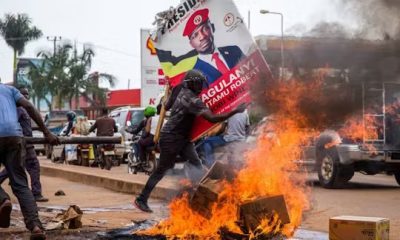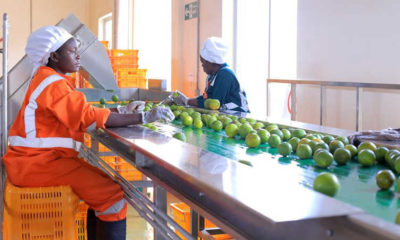Editorial
Uganda must find money for Skilling Programme

A student of Noah’s Arc children ministries is taken through the process of making furniture. Such skills are rare in Uganda
The government had budgeted Ushs 800m to start the programme in a few schools, a laughable figure considering the scale and urgency of the task at hand. And yet, instead of giving it a try, the government of President Museveni has found it convenient to sacrifice this vital programme by shifting its meagre budget to enhance the salaries of teachers who recently threatened a strike at the start of the new term.
This is most disappointing, to think of no better words. By sacrificing this programme, the government has forsaken an entire generation of Ugandans which is imbuing theoretical studies, at a very high cost to parents and the economy, only to find joblessness awaiting them after graduation.
The numbers don’t lie. There is only one job for a thousand applicants in the white collar job market. The Police and probably the Army, for which President Museveni has previously lured graduates, are fast filling up. The most recent recruitment exercise for the Police rejected anyone with a pass degree! Imagine! Prof. Augustus Nuwagaba once said Uganda will soon resemble Ghana and Nigeria, where PhD holders work as taxi drivers.
It is surprising to see that a government that prides itself in peace and security as its key achievement, does not consider joblessness as a major security issue. Did we learn anything from the Arab Spring which was sparked off by one youth Mohamed Bouazizi who set himself on fire to protest unemployment?
Uganda’s emphasis on theoretical education is not sustainable. Silencing a few vocal youths who take to the streets to demand for jobs, or beating up journalists who cover them is not the solution to Uganda’s runaway unemployment rate.
Uganda needs vocational education as soon as yesterday. And this must not be an issue for the political class alone or some idea you read about the newspaper and cast away. While it must a talking point in Kyankwanzi where major decisions are made these days, it must equally come to the dinning table where Mom and Dad debate it.
Transforming Uganda’s education system towards a skills-oriented system must be a point of debate in taxis and in drinking joints. It must be a topic of debate on barazas and call-in radio talk shows. It must equally be a top priority for every voter come 2016. Education is an economic issue for individuals as well as for the nation. It is a security issue, it is a cultural concern. Everyone must be interested.
Parents should start to look out for schools that offer technical skills when choosing where to take their kids this year.
Uganda is quietly bleeding from missed opportunities that have come courtesy of our over-investment in theoretical education and other misguided economic policies. The most clear evidence of this are the hundreds of millions of dollars the country spends on importing poor quality products from China when we could have supplied the same from our own factories had we chosen to invest in skills-training only a few years ago.
That haemorrhage is also evident in the way we fall over ourselves to hire Chinese skilled labourers to build our roads at billions of dollars.
It will very soon come to haunt us when oil companies start to import Filipinos and Indians to work in the oil sector as welders, electricians and technicians. A warning on the subject was made in a recent publication titled: “Planning for the Future and Promoting National Content, A survey to Foster Opportunities for Ugandans in the Oil and Gas sector” that was jointly published by Tullow, CNOOC and Total.
China and other Asian countries were never meant to be the factories of the world. Our leaders, our parents, our priests and sheikhs have allowed them to be by choosing to ignore the type of education given to the country’s majority population – the young people.
Comments


















